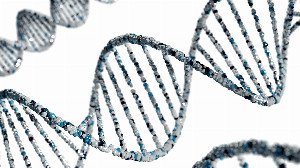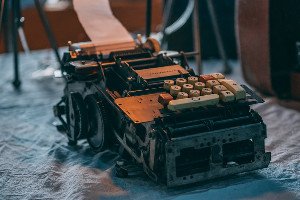Tomasz Krzyżowski, Marek Stasiowski
Patriota czy buntownik? Działalność niepodległościowa księdza Grzegorza Moszory w okresie Wiosny Ludów w świetle archiwów lwowskich i wiedeńskich
Introduction
Patriota czy buntownik? działalność niepodległościowa księdza grzegorza moszory w okresie wiosny ludów w świetle archiwów lwowskich i wiedeńskich. Poznaj działalność niepodległościową księdza Grzegorza Moszory w Galicji podczas Wiosny Ludów. Analiza z perspektywy patrioty/buntownika, oparta na archiwach Lwowa i Wiednia.
Abstract
A PATRIOT OR A REBEL?INDEPENDENCE ACTIVITIES OF THE PRIEST GRZEGORZ MOSZORA DURING THE SPRINGTIME OF THE PEOPLES IN THE LIGHT OF LVIV AND VIENNA ARCHIVESAbstract, Grzegorz Moszoro (1812-1881) was born in an Armenian family in Łysiec (Eastern Galicia). In 1838, he graduated in philosophy and theology from the University of Vienna and became a priest of the Archdiocese of Lwów within the Armenian rites. In 1839, he joined in Lwów a secret society called “Sons of the Fatherland”, for which he was accused of high treason, sentenced to death and deprived of his nobility. In 1845, the Emperor Ferdinand I pardoned him, ordering penance. In 1848, Moszoro became a vicar of the Armenian parish in Stanisławów, where he got involved in independence activities again. He participated in the work of the Regional National Council – an organisation striving for introduction of democratic changes and regaining independence by Poland. During sermons within the Armenian Church, he encouraged the faithful to rebel against the Austrian authorities. Gubernium in Lwów and starostvo in Stanisławów collected extensive material documenting the priest’s activity. On its basis, the activities of Moszoro were recreated – in the context of socio-political changes, occuring in Galicia at that time. In 1849, Moszoro became a rector of the Armenian parish in Tyśmienica, devoting himself exclusively to priestly work.
Review
The paper "Patriota czy buntownik? Działalność niepodległościowa księdza Grzegorza Moszory w okresie Wiosny Ludów w świetle archiwów lwowskich i wiedeńskich" presents a highly engaging and historically significant inquiry into the figure of Father Grzegorz Moszora. The central question posed in the title—whether Moszora was a patriot or a rebel—immediately captures the reader's interest and promises a nuanced exploration of his role during the tumultuous Springtime of the Peoples in Galicia. The abstract suggests a rigorous historical investigation, grounded in primary source material from Lviv and Vienna archives, which lends considerable weight and credibility to the forthcoming analysis of this pivotal period and a seemingly underexplored personality. The abstract clearly outlines the article's strength in meticulously reconstructing the life and political activities of Father Moszora. It traces his trajectory from an Armenian priest involved in the secret society "Sons of the Fatherland," leading to a death sentence and subsequent pardon, to his renewed engagement in independence efforts during 1848, notably with the Regional National Council. The detail concerning his use of sermons within the Armenian Church to incite rebellion against Austrian authorities highlights a fascinating intersection of religious and political activism, offering a unique perspective on the broader independence movements. The promise of detailing his activities within the socio-political context of Galicia further suggests a comprehensive and insightful biographical study. While the abstract provides a compelling overview, the full article would benefit from deeper engagement with the inherent complexities of its central question. Beyond simply narrating Moszora's actions, a critical analysis of how his Armenian identity might have shaped his Polish independence aspirations, or how the Austrian authorities' perception of him as a "rebel" contrasted with his self-conception as a "patriot," would enrich the discussion. Furthermore, exploring the specific content and impact of his incendiary sermons, as well as the reasons behind his apparent withdrawal into purely priestly work after 1849—whether due to disillusionment, strategic recalculation, or external pressures—would provide a more complete and psychologically intricate portrait. The rigorous use of Lviv and Vienna archives is commendable, and the review looks forward to understanding how these diverse archival perspectives illuminate the ambiguity inherent in the 'patriot or rebel' dichotomy.
Full Text
You need to be logged in to view the full text and Download file of this article - Patriota czy buntownik? Działalność niepodległościowa księdza Grzegorza Moszory w okresie Wiosny Ludów w świetle archiwów lwowskich i wiedeńskich from Lehahayer .
Login to View Full Text And DownloadComments
You need to be logged in to post a comment.
Top Blogs by Rating
Your Dynamic DNA: The Adapting...
By Sciaria
Beyond the Blueprint: Unveilin...
By Sciaria
From Wires to Wonders: The Ele...
By Sciaria
Favorite Blog
Identical Twins Aren't Identic...
By Sciaria
The Invisible Architect: How S...
By Sciaria
The Silent Architect: Unveilin...
By Sciaria
Related Research
Analisis pendapatan dan kelayakan usahatani jagung di desa rompo kecamatan lore tengah kabupaten poso
Animali e stregoneria
Hubungan gaya hidup dengan faktor resiko stroke iskemik pada lansia
Share
Notice Board
- PENGARUH MODEL PEMBELAJARAN SNOWBALL THROWING DENGAN MEDIA ROLLING BALL GAME TERHADAP MOTIVASI BELAJAR SISWA BERBASIS DARING DALAM PEMBELAJARAN IPS PADA KELAS VIII SMP N 33 SEMARANG
- FROM SHOCK TO STRENGTH: PSYCHOLOGICAL CAPITAL MEDIATES THE IMPACT OF REVERSE CULTURE SHOCK ON DISTRESS
- THE CHALLENGES OF DIGITALIZATION OF CIVIL JUSTICE: TOWARDS A FLEXIBLE ORALITY





